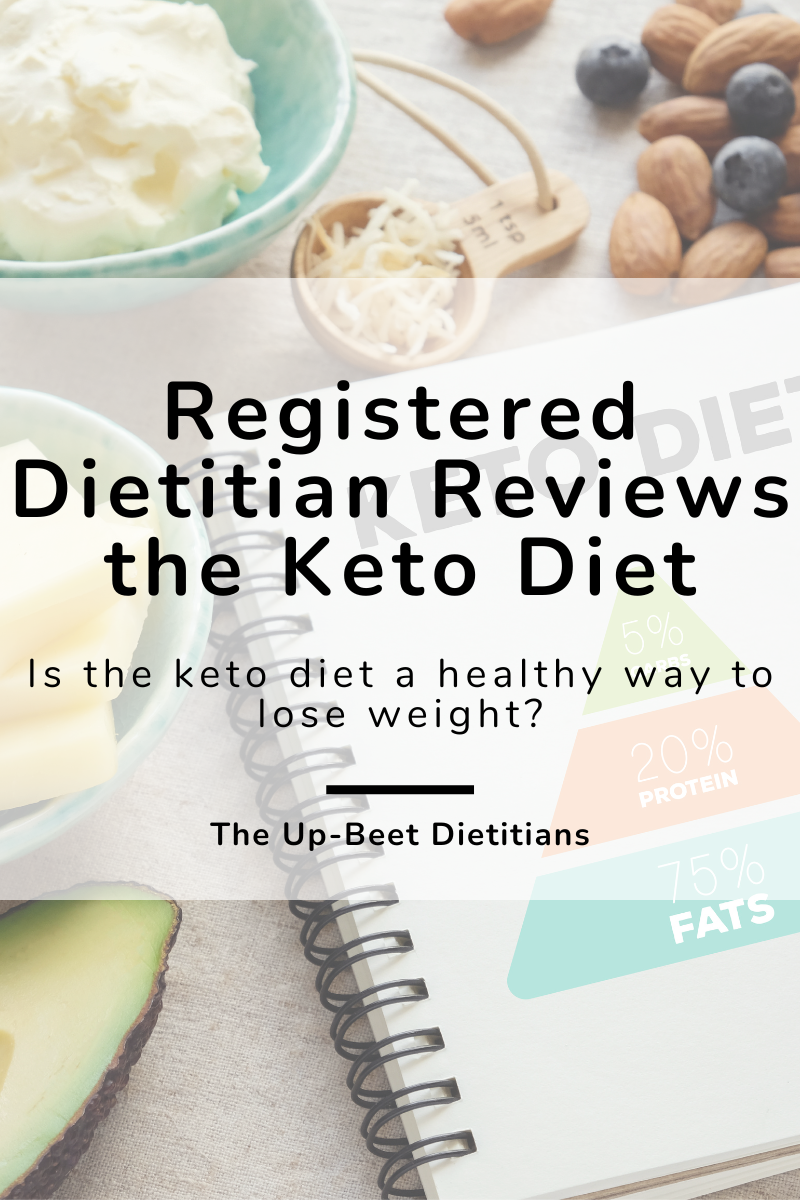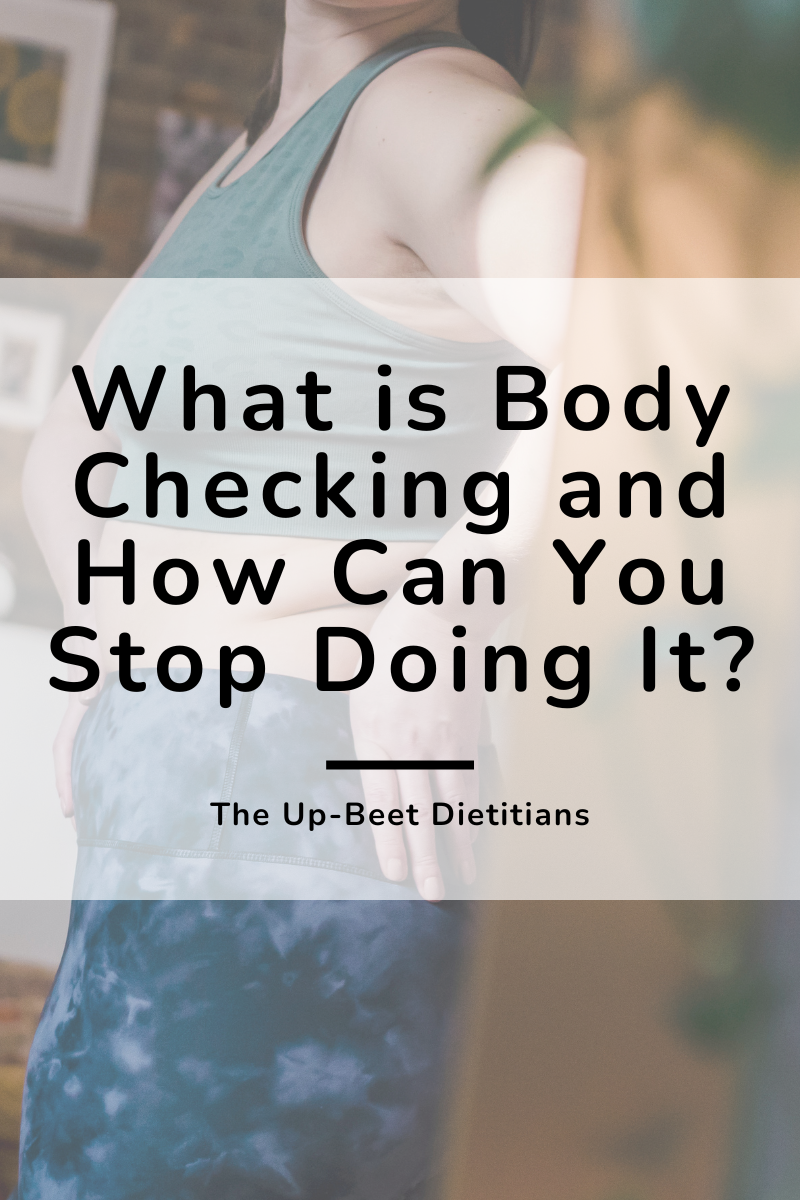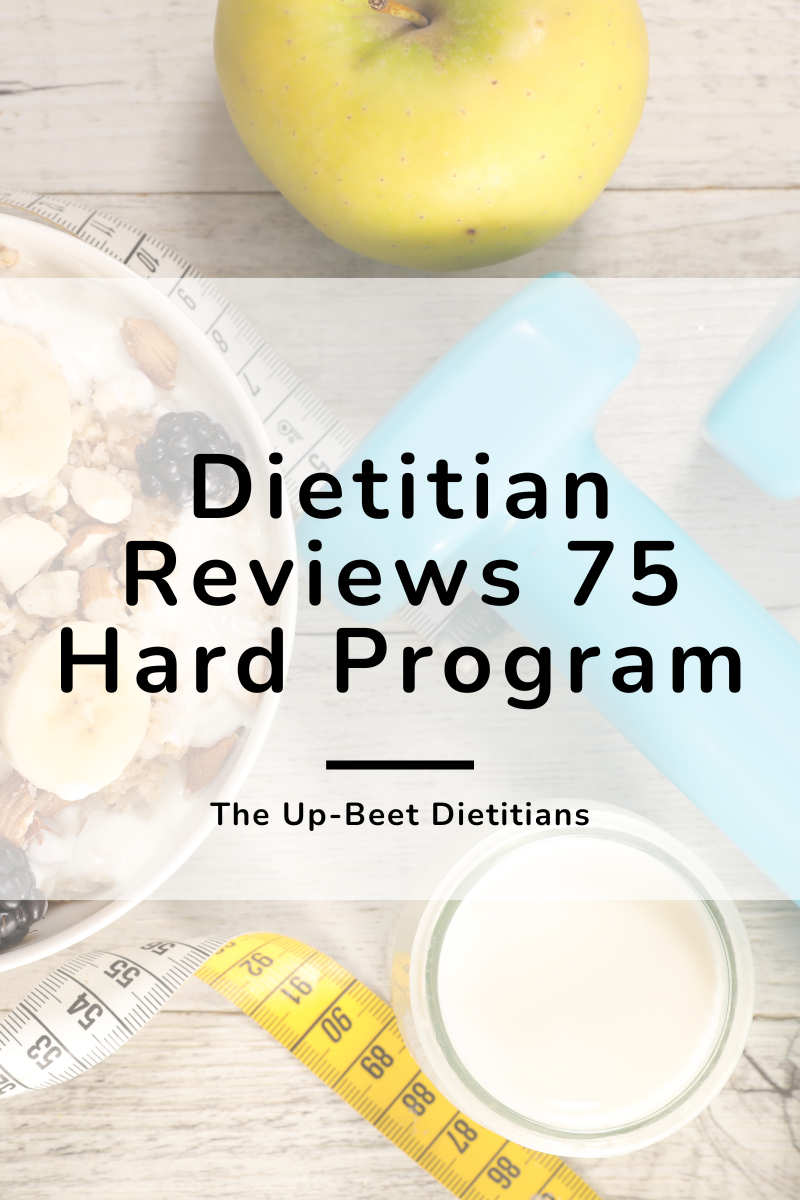Registered Dietitian Reviews the Keto Diet
Written by: Hannah Thompson, RDN, LD, CPT
Is the keto diet healthy? Here’s what a registered dietitian thinks about this popular fad diet.
Ah yes, the keto diet. Currently a very trendy sister to the old-school Adkins diet, the ketogenic diet is a highly anticipated topic of discussion. But as a registered dietitian, do I believe that the keto diet is healthy? Would I recommend it? Let’s dive in.
What is the keto diet?
The keto diet is a diet high in fat (65-75% of calories) and very low in carbohydrates (<5% of calories or generally below 50 grams of carbohydrates). The diet is moderate in protein (15-20% of calories).
The keto diet was originally created to treat epilepsy. It is intended to be prescribed by a doctor and monitored closely by medical specialists, including registered dietitians. While the diet is still used as medical nutrition therapy, it has become a very popular intentional weight loss method.
Because of its high fat nature, the keto diet often features foods like meat, fish, butter eggs, cheese, heavy cream, oils, nuts, avocados, seeds, and low carb green vegetables. Foods that are higher in carbs, such as grains, rice, beans, potatoes, sweets, milk, cereals, and fruits are not included.
What is ketosis?
The main purpose of the keto diet is to put the body into ketosis, which is a metabolic state that occurs when the body does not have enough carbohydrates to use for fuel. Carbohydrates are our body’s preferred energy source, but because our body is always trying to keep us in a state of homeostasis, it can adapt its energy source if needed. This is not ideal, but the body will burn fat and use ketones for energy instead when it is in ketosis.
It needs to be noted that there is a difference between the ketogenic diet and a low-carb diet. A ketogenic diet requires a very strict balance of macronutrients in order to achieve ketosis. One apple or packet of oatmeal will shift the body from ketosis to using glucose for fuel (which is what the body prefers). Unless you are following the keto diet to a t, you aren’t doing the keto diet, you are following a low-carb diet.
Why is the keto diet so popular?
The keto diet is currently very popular. This is more than likely because this diet leads to rapid weight loss in many who partake. Because we live in a society that praises weight loss and critiques those who aren’t actively trying to shrink their bodies, any diet that results in fast weight loss is admired by many. But unfortunately to many, this weight loss is often not sustainable long term.
Does the keto diet lead to sustainable weight loss?
When you remove an entire macronutrient (carbohydrates) from your diet, it makes sense that weight loss will occur. Removing this nutrient will lead to a drastic calorie deficit for many. Options become limited and food intake is decreased, so of course weight loss will be the result.
Another reason why the weight loss is often so drastic for those on the keto diet is due to the initial loss of water weight. When we cut our carbs, glycogen (the storage form of glucose that our body uses for energy) stores are depleted. Glycogen is largely composed of water and so when glycogen is depleted, water is lost as well. This means that the rapid weight loss experience when one starts the keto diet is likely water loss, not fat loss.
Those on the keto diet may find that weight loss sometimes plateaus or increases after this initial rapid loss as glycogen stores are renewed and water weight returns. This diet may also be unsustainable because of its restrictive nature. Most individuals cannot refrain from carbs long term. This is a good thing! Your body is trying to keep you in a state of homeostasis.
Is the keto diet healthy?
In order to determine if the keto diet is healthy, we first have to acknowledge that the term “healthy” has been hijacked by diet culture. If you define weight loss as the main measure of health, then yes, by that standard the keto diet is healthy. But we know that weight loss does not always equate to improved health measures. What about chronic disease? What about mental health and relationship with food? Let’s discuss how the keto diet may impact various determinants of health.
Keto diet and cardiovascular disease
There is limited long term evidence to support the keto diet benefiting one’s cardiovascular health. Some evidence does show worsened LDL cholesterol (the “bad” cholesterol) and triglyceride levels. This is likely a result of increased intake of saturated fats and decreased intake of fiber while following the keto diet.
Keto diet and type 2 diabetes
This is very controversial, as some in the keto community swear by the keto diet for treatment of type two diabetes. And there is some data to show improvements in blood glucose levels and A1c while following the keto diet. But what happens when the diet isn't sustainable (because it is not sustainable for most individuals)? What happens when a severe restriction of carbohydrates leads to disordered eating or even an eating disorder? I would argue that health is not improved simply by short term blood glucose management, but by long term management along with improvements in other areas of health.
Want to hear more on finding food freedom with diabetes? Be sure to check out this podcast episode.
Keto diet and relationship with food
Let’s not forget that our mental health is part of our health. And dieting is often very detrimental to mental health. Any time we are told we “cannot” have a certain food, this only increases our desire and drive for said food. Think about it - what happens when you tell a kid that they aren’t allowed to play with the yellow dump truck toy? They will go out of their way to play with that toy! Not only is there a biological drive for our body to eat carbs, but our brain is also hardwired to want what it isn’t “allowed” to have.
The importance of carbohydrates
As mentioned above, carbohydrates are our body’s preferred source of fuel. Can our body operate without them? Metabolically, yes. But it is not ideal. This is like asking if you can live your life without internet and plumbing. While you technically could, in this day and age you will be much more comfortable with WiFi and a toilet that flushes.
Not only does our body operate optimally with carbs, our mental health is also improved when we make peace with food and follow a more balanced approach to nutrition. The keto diet is very restrictive in nature and this deprivation can increase the risk of disordered eating and even lead to the development of an eating disorder.
Bottom line
The keto diet gets two thumbs down from me. Any diet that removes an entire food group is problematic. This restriction can lead to a worsened relationship with food and is likely unsustainable for most people. Enjoy your carbs! They are your body’s preferred source of energy and incorporating them will help you stay satisfied with your meals and snacks.
Want to learn more about Intuitive Eating and how to start your food freedom journey? Join our course to learn how!





